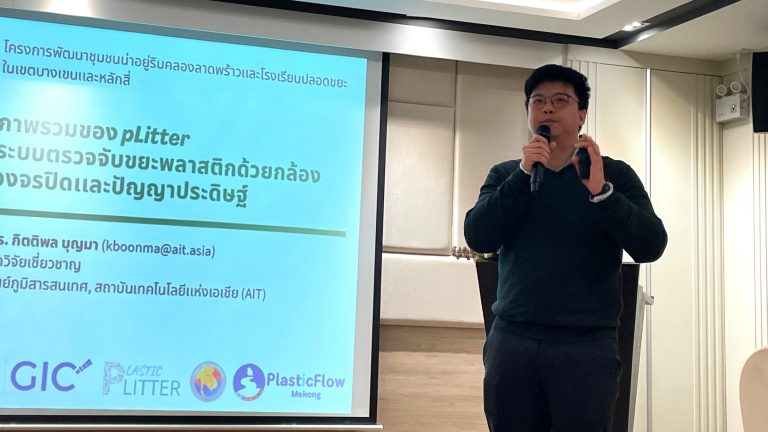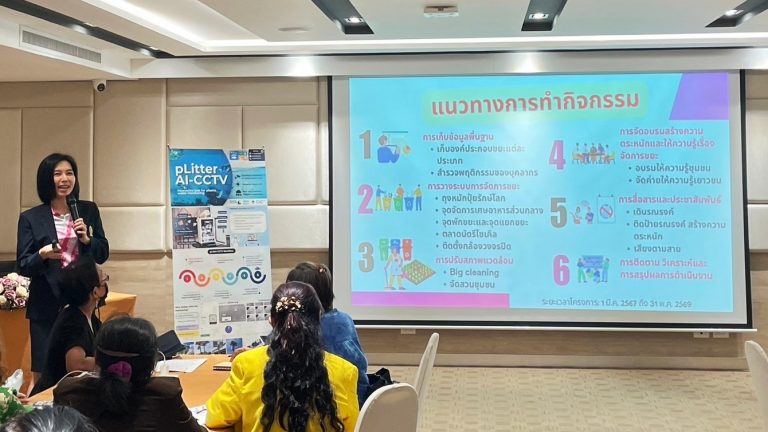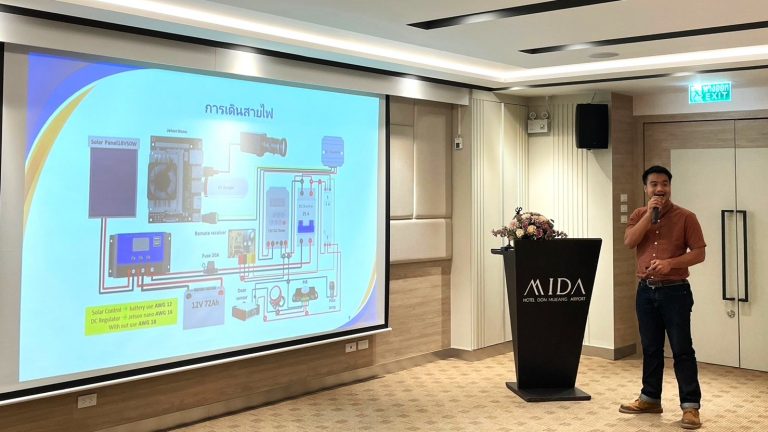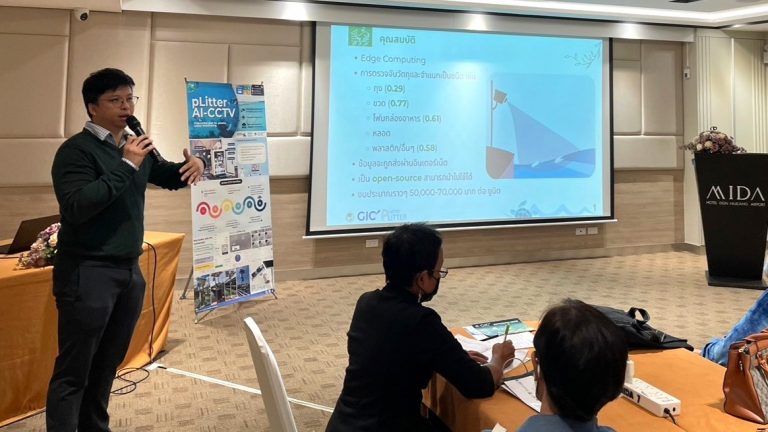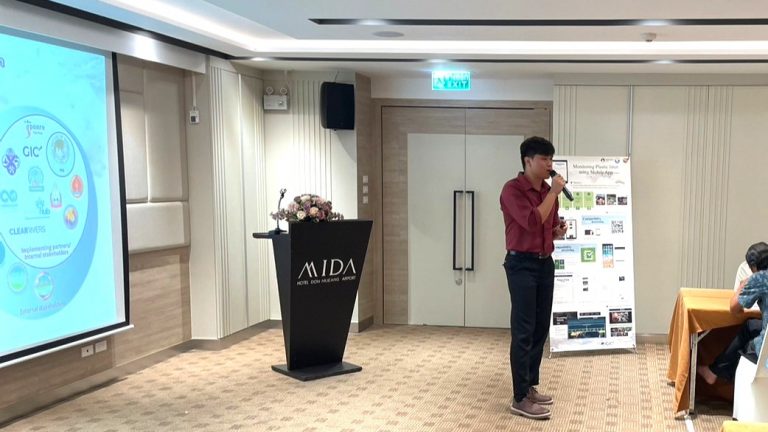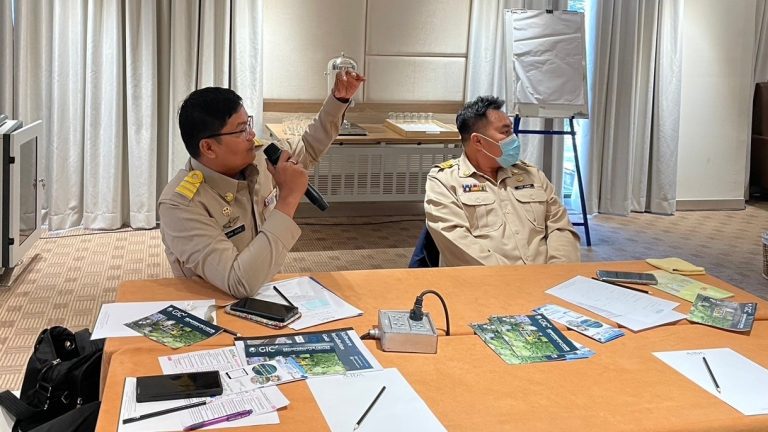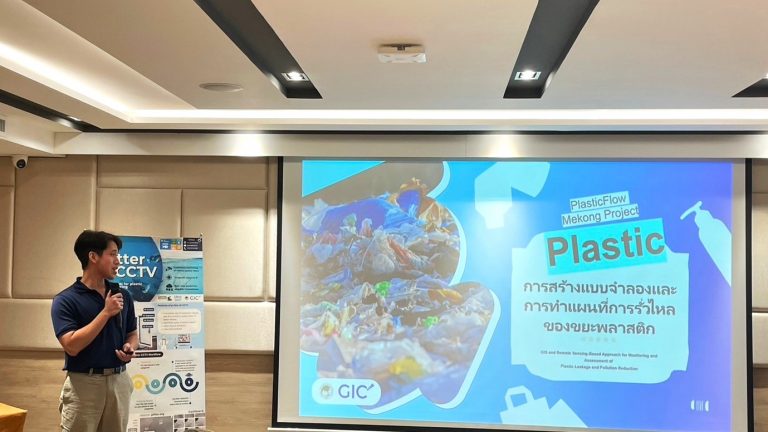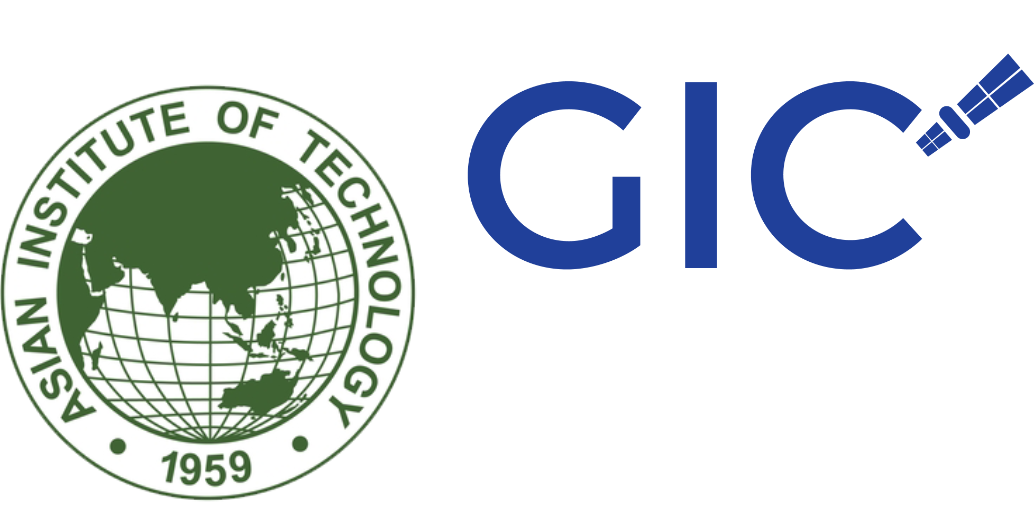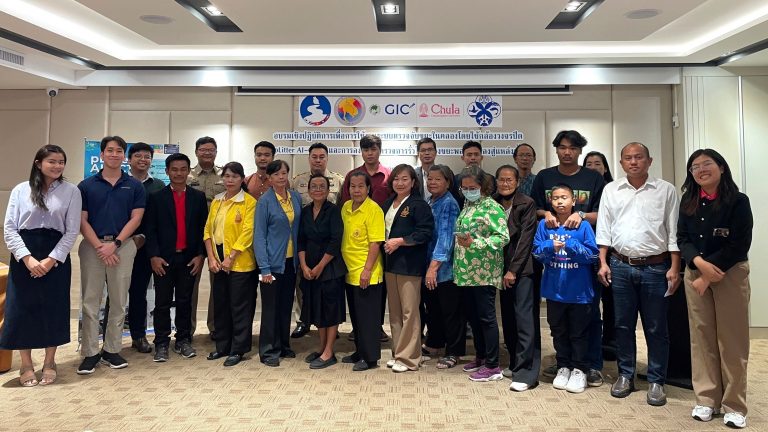
Overview
GIC organized a training workshop on Plastic Leakage Mapping and Monitoring Plastic Litter using AI-CCTV, in collaboration with Sustainable Environment Research Institute (SERI), Chulalongkorn University in Bangkok, Thailand. This was the fourth workshop series under the ongoing Plastic Flow Mekong project funded by the Mekong-Republic of Korea Cooperation Fund. The workshop aimed to enhance the skills of the local team and waste management staff. Participants learned to utilize AI-enabled CCTV systems and geospatial tools, including Citizen Science and a Survey Mobile App, to monitor plastic leakage and manage waste more efficiently and effectively.
Highlights
The event began with welcome remarks from Dr. Sujitra Vassanadumrongde, Project Leader, SERI, who welcomed participants and organizers. This was followed by her presentation wherein she explained about the project progress and their efforts to develop a livable community along Khlong Lad Phrao as well as a waste-free school in Bang Khen and Lak Si district. This was followed by a presentation from Dr.Kittiphon Boonma, Project Coordinator for the Plastic Flow Mekong Project, who provided an overview of the pLitter solution, its features, limitations and application in plastic leakage mapping and citizen science.
The following sessions focused on the technical aspects of the pLitter CCTV system, with Mr. Pongpol Wipasuramonton covering the hardware components including its design and assembling while Dr. Boonma discussed the software of the AI-CCTV. Participants engaged in a productive discussion on the feasibility of applying this technology within their respective agencies, highlighting its limitations, offering suggestions for improvement, and making recommendations for expanding its capabilities.
Next, Mr Thanaphol Boodchuang presented on-ground surveys using a mobile app and demonstrated its use to the participants. Following this, Mr. Karun Mooksrisai then explained how public data would be utilized to create plastic leakage maps. They learned how to conduct ground surveys for identified plastic waste, and feedback on the app’s feasibility was shared.
